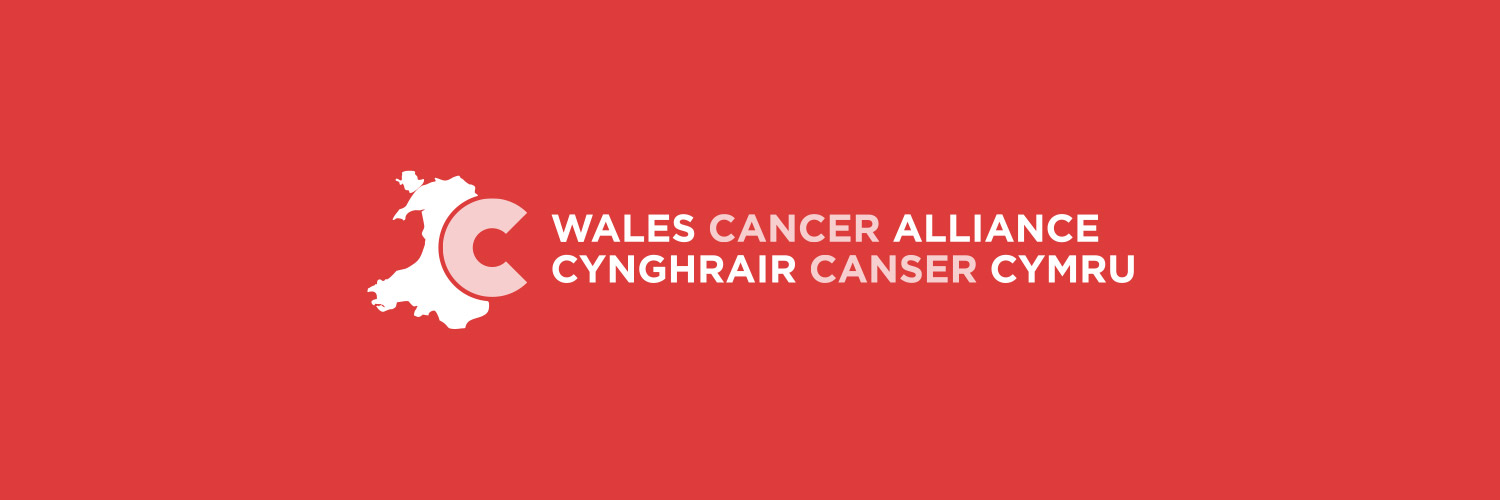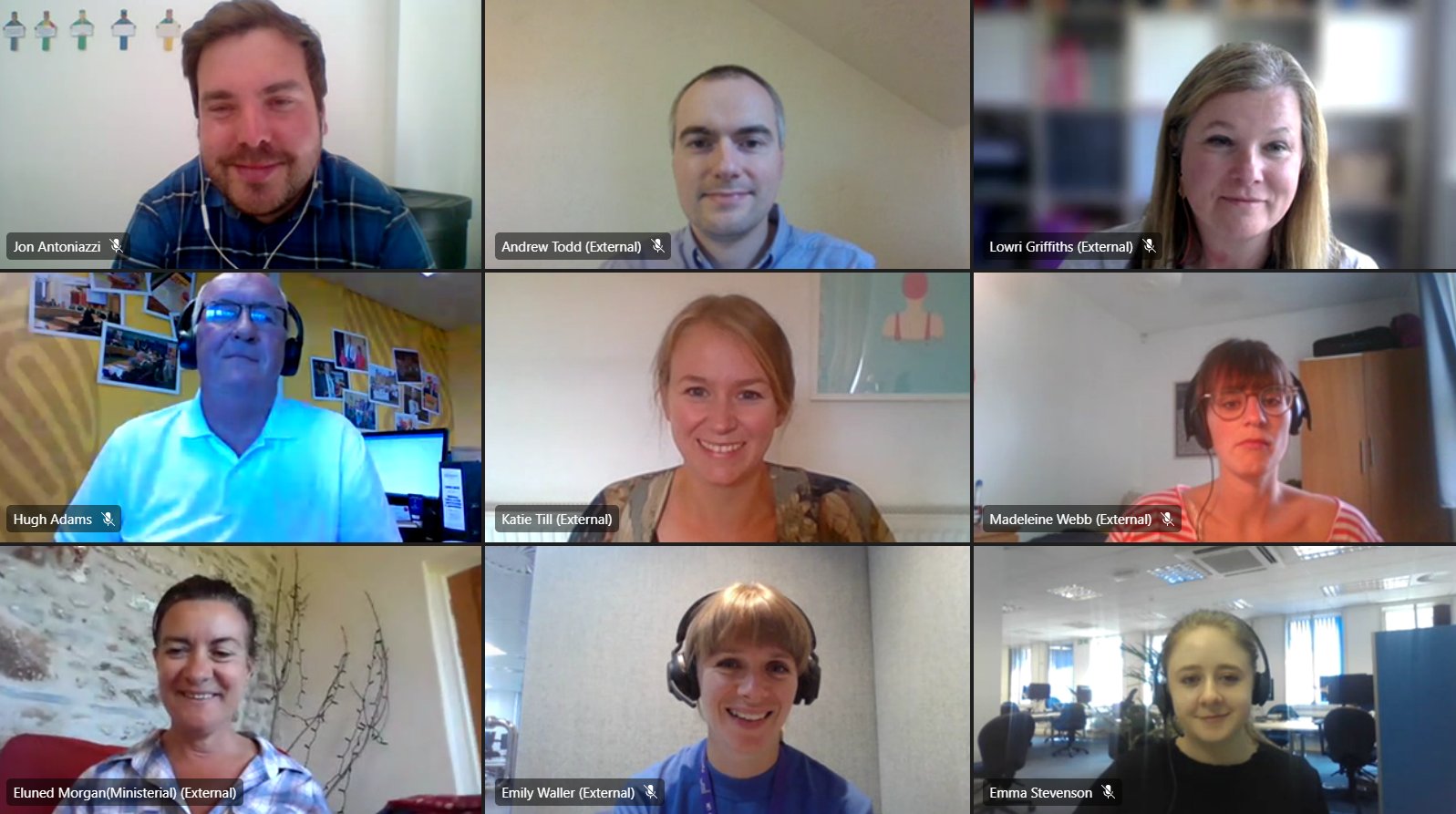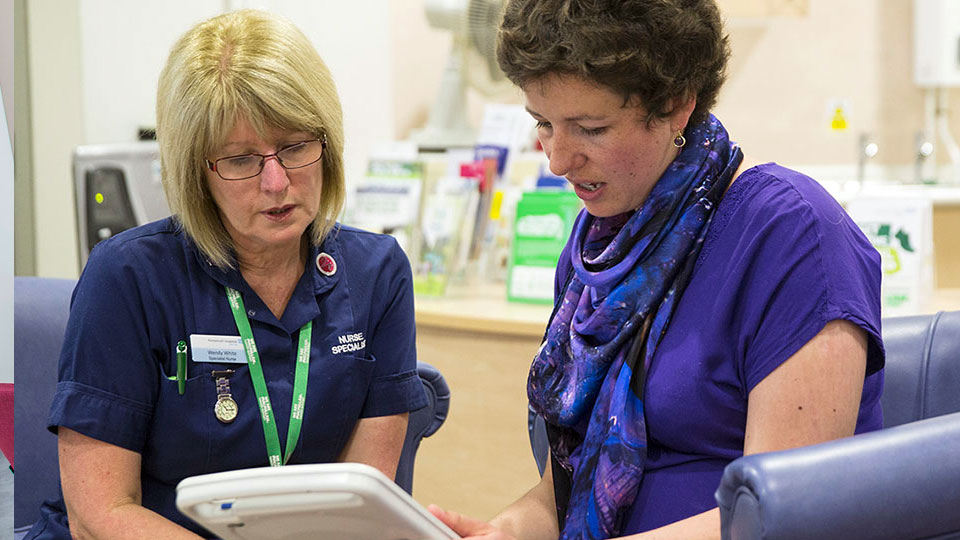Issued 22 March 2021
Cancer care in Wales at risk without a new
cancer strategy, warns the Wales Cancer Alliance
Wales’s cancer services could struggle to recover
after the pandemic warn 20 leading cancer charities
Cancer services in Wales could
struggle to recover after the coronavirus pandemic leading to poorer care and
outcomes unless a new cancer strategy is put in place, 20 leading cancer
charities are warning today.
Wales could soon be the only UK
nation without a cancer strategywith the Welsh Government opting to
publish a brief quality statement today (Monday 22 March) instead of replacing
its detailed cancer plan.
This is despite stark and repeated warnings
from the 20 charities in the Wales Cancer Alliance coalition that the statement
does not go far enough.
While the alliance welcomes the NHS
Covid recovery plan, also published today by the Welsh Government, this plan covers
the immediate recovery from the pandemic and does not have the long-term vision
cancer services in Wales needs.
At a time when cancer services are
under more pressure than ever due to the pandemic, the alliance is concerned
people in Wales will have poorer and less personalised cancer care without a
comprehensive cancer strategy.
Until the end of 2020, Wales had a Cancer Delivery Plan
which had ambitions for cancer care outcomes that matched the best in Europe.
This led to new innovations being introduced, such as rapid diagnostic clinics
for people experiencing non-specific symptoms that might be cancer.
The strategy, which was 21 pages,
has been replaced by a quality statement that is around three pages long.
Most importantly, the quality statement
lacks a clear roadmap for how cancer care can improve so that Wales can catch
up with the best performing countries and, ultimately, save more lives.
The Wales Cancer Alliance does not
believe this is a sufficiently detailed response to the current crisis in
cancer care, nor does it point to a sufficiently bold ambition for cancer
services in Wales.
Wales already performed worse on
cancer compared to similar countries before the pandemic.
Macmillan Cancer Support estimates
that 3,500 people[i] are
living with undiagnosed cancer in Wales with the backlog in screening
diagnostic services continuing to grow.
Richard Pugh, Chair of the Wales
Cancer Alliance and Head of Partnerships at Macmillan Cancer Support, said: “Cancer
services in Wales are under more
pressure than ever before due to
cancellations and delays caused by the coronavirus pandemic.
“Today the 20 charities in the Wales
Cancer Alliance are warning that Wales will shortly be the only UK country
without a detailed cancer strategy at a time when we can least afford to be
without one.
“We are urging the Welsh Government
to replace its Quality Statement with a comprehensive cancer strategy that
details how our NHS will tackle the growing backlog of people needing cancer
diagnosis and care and set out how people with cancer in Wales can get the
personalised and timely care they need to have the best possible outcome.
Andy
Glyde, Vice Chair of the Wales Cancer Alliance and Senior External Affairs
Manager at Cancer Research UK, said: “It is extremely disappointing that the
Welsh Government has decided that a very short quality statement is enough to
address some of the biggest problems facing cancer services and people affected
by the disease in Wales.
“Right
now, we need to see a bold and ambitious vision, where we aim to recover from
the impact of the COVID-19 pandemic, improve cancer services for people in
Wales and ultimately save more lives. This document simply is not good enough.
“The
World Health Organisation recommends that every country has a cancer strategy.
In Wales, a plan like this would bring us into line with other, better
performing nations. Together with other cancer charities, we strongly urge the
Welsh Government to change its approach to fulfil this need.”
Martin
Fidler Jones, Policy Officer at Tenovus Cancer Care, said “Since the start of the pandemic we have seen the number of people being
sent for cancer tests fall to way below their normal levels, as people have
stayed away from health services to protect the NHS.
“Early diagnosis is absolutely vital to long term survival. With thousands of
people potentially living with undiagnosed cancer, we need a detailed, long
term plan to get our cancer services back on track and enable us to build back
better.
“Sadly, today’s publication from Welsh Government falls significantly short of
our expectations as a charity and as a cancer sector.”
The
Wales Cancer Alliance (WCA) is a coalition of 20 charities working to prevent
cancer, improve care, fund research and influence policy in Wales.
The
charities that make up the alliance are:
The Brain Tumour Charity
Breast Cancer Now
Bowel Cancer UK
British Liver Trust
Blood Cancer Alliance
Cancer Research Wales
Cancer Research UK
CLIC Sargent
Hospices Cymru
Jo’s Cervical Cancer Trust
Macmillan Cancer Support
Maggie’s
Marie Curie
Ovarian Cancer Action
Myeloma UK
Pancreatic Cancer UK
Prostate Cancer UK
Target Ovarian Cancer
Teenage Cancer Trust
Tenovus Cancer Care
[i] Assumptions
Missed
diagnoses
(1) We assume there would have been 19,000
cancer diagnosis in 2020 if not for the pandemic. This is an estimate based on
the trend of incidence in recent years (2015-2017 range between 18.9k – 19.6k)
but it’s is not a projection.
(2) We assume these diagnoses would have
come about evenly across the calendar year, at around 1,583 diagnoses per month
(19,000 / 12).
(3) We assume that whatever level of change
is observed to the number of people entering the SCP in a given month (as a
result of the pandemic), that the same change will occur to the number of
cancer diagnoses as a result. E.g. a 20% drop in number entering the SCP would
see 20% fewer cancer diagnoses, or 317 fewer diagnoses (1,583 x 20%).
Calculations
Missed
diagnoses
• We use the number of patients
entering the SCP as reported in the monthly CWT reports from June 2019 onwards.
• We create a ‘pre-pandemic baseline’
of the number entering SCP per working day, based on reported figures for June
2019 to Feb 2020. We see 118,871 patients in total across 191 working days =
622.4 entries per working day.
• We sum up all of the corresponding
counts for the period Mar – Nov 2020 (latest available data point) and find a
total of 90,007 patients across 191 working days = 471.2 entries per working
day.
• We now compare entries during the
pandemic period (471.2 per day) to the pre-pandemic period (622.4 per day)
which gives us a figure of 24.3% fewer people entering during the pandemic
period, specifically this period is the 9 months from March to November 2020.
• As per the assumptions listed above, we estimate that there would have been 9 (months) x 1,583 (diagnoses per month) = 14,250 cancer diagnoses during this pandemic period. If 24.3% of these did not happen then our estimate of missing diagnoses becomes 3,460 or ‘around 3,500’.







